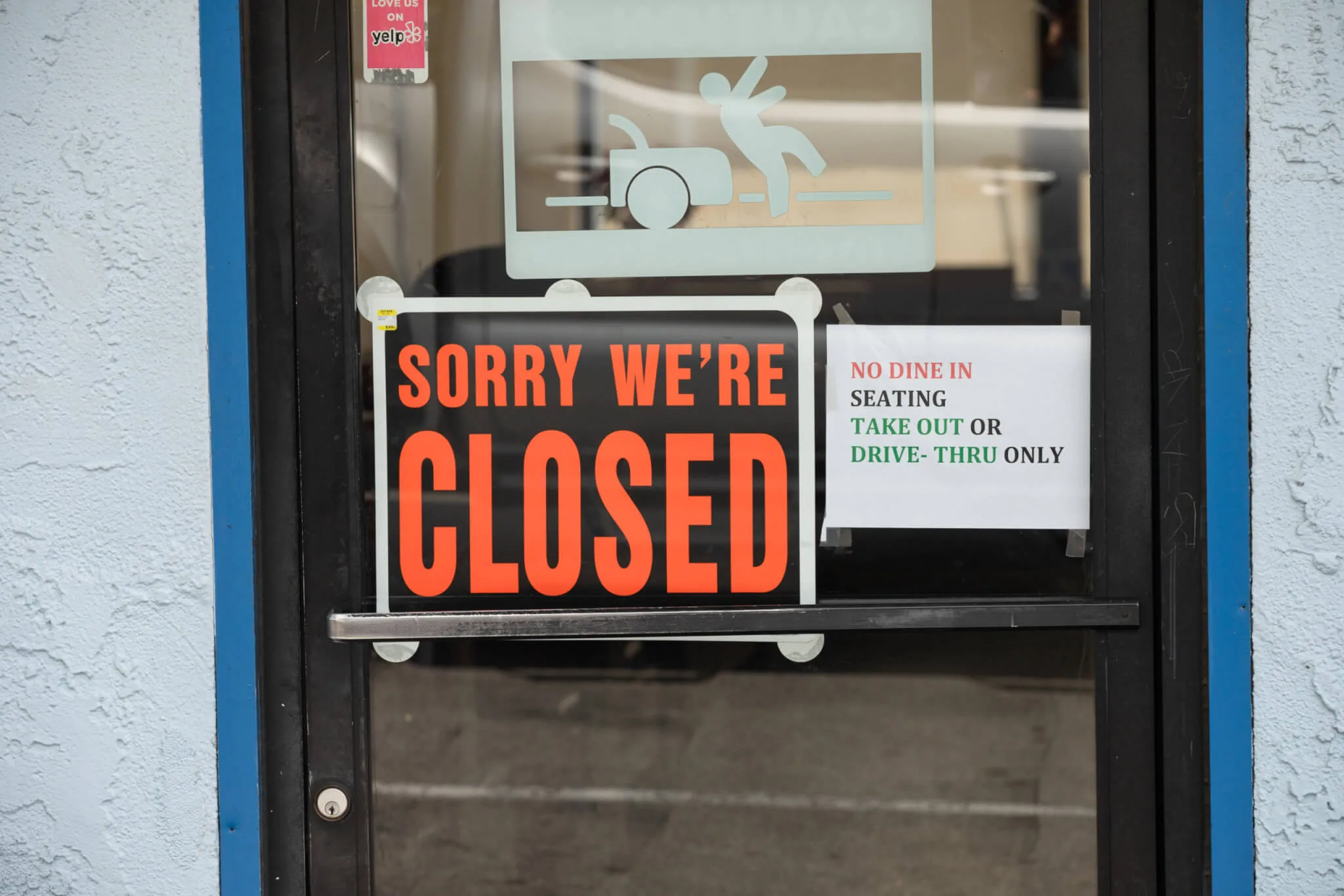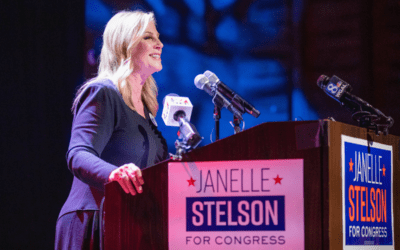
Image via Shutterstock
“Typically, the federal government would be providing guidance for this industry.”
Indoor restaurant dining isn’t going to go back to “normal” anytime soon, according to Dr. Neil Clancy, a Pittsburgh-based infectious disease physician. “I just can’t see that within the next year, restaurants will be able to operate at full capacity with indoor dining,” he said. “Even if our numbers go back down, I just don’t think it’s going to be feasible.”
On July 16, Gov. Tom Wolf implemented new restrictions across the state that reduce a restaurant’s indoor dining capacity to 25% and limit on-site alcohol consumption to those ordering meals only. The new guidelines for restaurant dining are in direct response to an “unsettling” spike in new COVID-19 cases, according to the governor.
“When we hit our peak on April 9, we had nearly 2,000 new cases that day with other days’ cases hovering around 1,000. Medical experts looking at the trajectory we are on now are projecting that this new surge could soon eclipse the April peak. With our rapid case increases, we need to act again now,” Wolf said in a statement earlier this month.
On Thursday, the state health department reported an additional 962 positive cases of COVID-19, bringing the statewide total to 104,358. At least 7,079 Pennsylvanians have died because of the virus.
Even as the governor is pushing for federal support of struggling restaurants, state Republicans have criticized his latest orders with regard to restaurant dining. Rep. Sue Helm (R-104), for example, placed the economic blow restaurant owners are facing directly at the governor’s feet.
“Once again, the governor has made a unilateral decision that will have a devastating impact on many small business owners and employees,” Helm stated. “This statewide, one-size-fits-all approach fails to take into account the varied levels of infection rates in rural, urban and suburban communities. By failing to work with local officials and lawmakers, the governor has essentially stifled the voices of millions of Pennsylvanians.”
New House Majority Leader Kerry Benninghoff (R-171) also criticized Wolf’s “continued overreach and misuse of power” after the latest restrictions were put in place. Yet because President Donald Trump and his administration failed to create a cohesive, national strategy to respond to the crisis, Wolf and other governors have been forced to make tough decisions on their own to protect the health of citizens in their states.
Benninghoff, though, claimed the new policy is one of the catalysts behind Republican lawmakers’ current attempt to amend the state Constitution to limit the governor’s emergency powers.
“The irreversible impact of his countless, confusing orders cannot be overstated,” Benninghoff said in a statement. “Gov. Wolf’s decision today will close the doors of some small businesses forever and devastate the livelihoods of so many Pennsylvanians who were just beginning to feel hopeful for the future.”
Dr. Clancy, an associate professor of medicine and director of the XDR Pathogen Lab at the University of Pittsburgh, believes a major factor in changing guidelines and restaurants and other places of business operating at a limited capacity for the foreseeable future is due to lack of testing. “Though testing has ramped up, we’re still lagging behind in the U.S. And turnaround time for testing is an issue in many places—it’s taking so long to get results,” Dr. Clancy explained.
In fact, it’s a nationwide concern, especially as the Trump administration has consistently downplayed the danger of the virus and actively worked to roll back federal support for testing.
“The whole point of getting test results is so people can behave responsibly and isolate themselves and reduce the risk of transmission,” Dr. Clancy said. “But if you’re taking what would be a full quarantine period to get results back, which is happening in many areas, then it really defeats the point.”
“Though testing has ramped up, we’re still lagging behind in the U.S. And turnaround time for testing is an issue in many places—it’s taking so long to get results.”
Dr. Clancy validated the struggle the restaurant industry is facing right now, calling it a failure of federal authority. “Typically, the federal government would be providing guidance for this industry,” he said. “Industries and individual companies and restaurants at this stage have had to make pandemic decisions on their own because there have been no federal guidelines to help them out.”
He commended Wolf’s navigation of the pandemic and his localized response to the trajectory of the virus, saying there is no “one-size-fits-all” solution for the state as a whole. “Pennsylvania’s had to respond to the pandemic playing out in different ways, with different trajectories in different parts of the state.”
The Federal Response
Wolf is now calling on Congress to provide financial relief to the nation’s restaurants by passing the Real Economic Support That Acknowledges Unique Restaurant Assistance Needed to Survive (RESTAURANTS) Act. The bipartisan bill in Congress provides $120 billion to help independent restaurants with the economic challenges created by the COVID-19 pandemic, calling it a “critical step” to help many of these small businesses save jobs.
Senate Majority Leader Mitch McConnell is set to unveil another coronavirus aid package soon that will include small business subsidies. The Paycheck Protection Program (PPP) has received $660 million to help small businesses get through the pandemic, and Treasury Secretary Steve Mnuchin is aiming for hard-hit sectors like restaurants to receive further aid. According to the Star Tribune, there is currently more than $100 billion available in unspent PPP funding that can be repurposed.
As for restaurant dining during the pandemic, Dr. Clancy believes it’s not possible to “scrupulously maintain precautions” like keeping an appropriate distance from staff and patrons, mask-wearing, and following recommended hand hygiene protocol at full capacity indoors.
“In an ideal world, you’d shut everything down and have legislative bodies try to help people out and get them through it—to support people in industries who are hurting,” he said. “The [coronavirus aid] legislation passed federally did help, but ideally it would have been a more comprehensive response that took care of industries that are particularly hurt by the pandemic. And restaurants are definitely hurting.”

For Rep. Susan Wild, supporting PA families includes reproductive rights and much more
Rep. Susan Wild wants to be very clear with Pennsylvanians: Donald Trump is committed to taking away women’s reproductive freedom, but he is not...

School districts working with anti-LGBTQ groups can cost your kids’ schools millions
Parents across South Central Pennsylvania are worried about the potential financial impacts working with anti-LGBTQ groups may have on their school...

VIDEO: Trump distances himself from his anti-abortion views
Donald Trump appeared on WGAL on Tuesday and continued to distance himself from his anti-abortion views claiming that reproductive rights are now a...

VIDEO: Community pushback gets school board to rescind decision on denying gay actor’s visit
Cumberland Valley School Board offered a public apology and voted to reinstate Maulik Pancholy as a guest speaker a week after the board voted to...

VIDEO: Project 2025 brings nuclear armageddon back into vogue
Project 2025 is a titanic document, with plans ranging from cutting half of all government employees to targeting reproductive rights on a scale...




